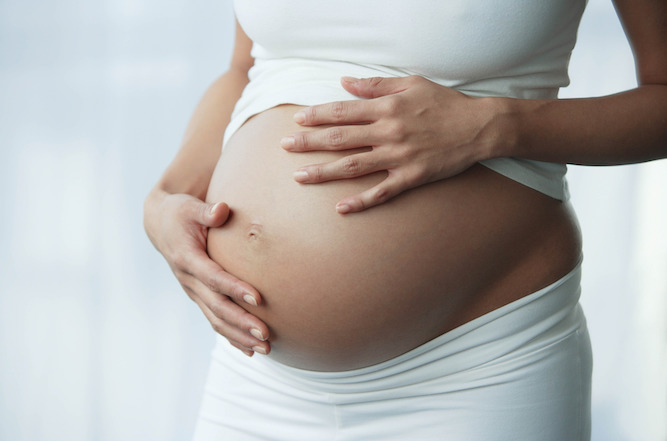In this article
Why you should get physiotherapy before and after pregnancy
It’s probably no surprise to anyone who’s been pregnant (or just spent time with someone else who is) that growing a human is an incredibly physically demanding time for a mum-to-be.
In fact, studies now show that pregnancy ranks alongside ultramarathon running and the Tour de France as an endurance event. Recent research into the limits of human endurance has revealed that ‘pregnancy is the longest duration, highest energy expenditure thing that humans can do.’
You wouldn’t undertake an ultramarathon without expecting some support from a physiotherapist – so why would you go through a pregnancy without the same?
Growing a baby can place significant strain on the mother’s body, and – without careful management – that physical toll can carry on long after the baby has been born.
Pregnancy puts pressure on your posture as your body adapts to accommodate – and then deliver – your child. Changes in the loading and alignment of your spine and your weight bearing joints are key contributors to the back pain, pelvic girdle pain and headaches many women experience in pregnancy.
There are many ways a physiotherapist can help you manage pregnancy and the significant toll it takes on your body. We’ve listed a few of them below – as well as some tips on when you should speak to your doctor or healthcare provider.
Headache relief
Headaches are one of the most common conditions encountered during pregnancy. Headaches may be experienced at any time during your pregnancy, although they tend to be more common during the first and third trimesters.
During your first trimester, your body experiences a massive surge of hormones and a corresponding increase in blood volume. Both these changes can prompt more frequent headaches. Headaches can be made worse by:
- Stress
- Lack of sleep
- Poor posture
- Low blood sugar
- Dehydration
- Depression and anxiety
- Coffee withdrawal
- Changes in your vision
Experiencing headaches during your third trimester can be connected to tension and poor posture from additional weight gain. Frequent headaches during your third trimester may also be a symptom of pre-eclampsia, a condition brought about by high blood pressure during pregnancy. Pre-eclampsia is a serious condition, so you should contact your healthcare provider immediately if you believe you may be at risk.
If headaches are related to muscle tension or posture, a spinal consultant or physiotherapist may be able to help you. Manual therapy provided by a trained clinician on the upper neck joints can quickly reduce pain and alleviate headaches.
A physiotherapy session may include a series of neck and shoulder massages, mobilisation, gentle manipulation and simple exercises you can practice in your own home.
Relieving pelvic girdle pain
During pregnancy, your pelvis will become looser thanks to a hormone called relaxin. This hormone is released by the placenta and your ovaries to relax the ligaments in your pelvis in preparation for childbirth. This can lead to pelvic girdle pain, a persistent aching experienced in the front and back of the pelvis.
Approximately 20% of women experience pelvic girdle pain during pregnancy, and the incidence is higher later in pregnancy.
Relaxin can also cause other ligaments to relax, affecting the support and stability of weight-bearing joints and causing back and knee pain.
There’s a range of treatments available for pelvic girdle pain, including specialised clothing to help support your pelvis during pregnancy. It’s also worth seeing a physiotherapist if you’re experiencing consistent pain in your pelvis.
Postural support
When you’re growing a baby, it changes the entire weight distribution in your body. As Bub grows and expands, he or she takes up more of your precious midriff real estate, moving your inner organs into places they don’t usually sit. Pregnancy can also throw your posture out of line, as your back curves more than usual to try and balance out the load.
Seeing a physiotherapist can help you realign your posture, which in turn can help reduce back pain. A physiotherapist or spinal specialist can not only provide some immediate relief, but they’re also trained to help your body get aligned and stay aligned – before, during and after pregnancy.
Preparing for birth and post-natal recovery
A physiotherapist can also support you with preparing to deliver your baby and help with recovery afterwards.
With their knowledge and experience, a physiotherapist can help you learn how to push correctly during childbirth to reduce your risk of post-natal pelvic issues.
A physiotherapist can also support you in recovery from perineal tears, caesarean delivery or separated abdominals. Our physiotherapists are well-versed in post-pregnancy rehabilitation, recovery, and strengthening to help you regain stability and core strength and rebalance your body.
Finally, a physiotherapist can also advise you on protecting and strengthening your back to prepare for all your post-natal bending – and all that late-night lifting of your new little bundle out of their cot.
If you’re expecting a new arrival (or are just in the planning stages) it’s important to consult trained professionals for treatment, such as the spinal consultants at our Eight Mile Plains, North Lakes, and Daisy Hill clinics.
Our team can teach you techniques to help you get your body ready for the toughest test it’s ever likely to face and make sure it bounces back afterwards. Contact the team at The Brisbane Spine Clinic to book an appointment.







